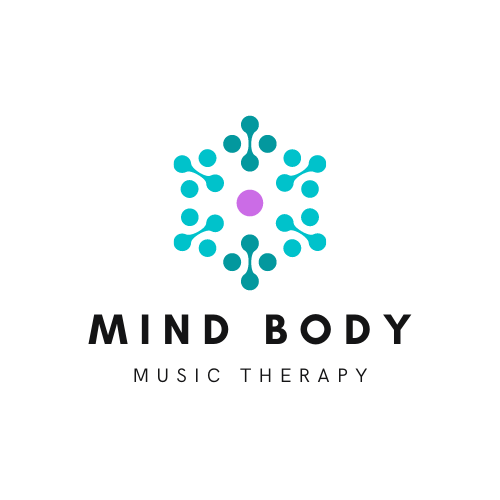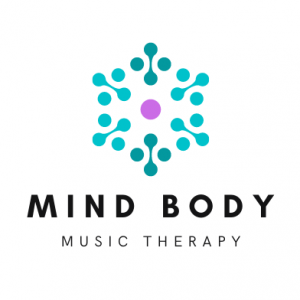
What is Music Therapy?
As a music therapist, I find myself answering this question a lot. Even clients calling to book a session still have questions: What is music therapy? What does it look like? Who is it for?
To answer these questions, I’m spending the month of January focusing on this topic across my social media . In this blog, I’ve brought this all together in one place. Of course, words and description can only do so much, so if you’re curious to understand music therapy more fully you might like to join my Music Therapy taster sessions in February.
What is Music Therapy?
Music therapy harnesses the power of music to address various physical, emotional, cognitive, and social needs. In music therapy, trained and certified music therapists use a variety of musical activities and techniques to create a therapeutic environment tailored to individual clients. Music therapy is…
An Allied Health profession
Music therapy is a recognised allied health profession with a regulating professional body – the Australian Association of Music Therapy (AMTA). To provide music therapy, music therapists need to have an accredited degree and maintain their skills with regular professional development. Music therapists must also adhere to AMTA’s Code of Ethics and professional conduct guidelines.
AMTA is a member of Allied Health Professions Australia and the National Alliance of Self Regulating Health Professions (NASRHP).
As recognised Allied Health professionals, music therapists work alongside physiotherapists, occupational therapists, speech pathologists and more to support your health and wellbeing in a range of health settings.
Eligible funding
As an allied health profession, music therapy is eligible for funding through the NDIS and Aged Care Home Care packages.
Goal-directed and evidence-based
Music therapists use evidence-based musical methods to help you achieve non-musical goals (e.g. improving physical, cognitive, emotional, psycho-social & cognitive health) and improve quality of life and wellbeing.
Personalised
Every person is unique, so different musical approaches might be helpful for different people. Music therapy also caters to changes in your needs from moment to moment, as for many people, no one day looks the same.
All about the therapeutic relationship
Growth, healing and recovery are supported by the relationship between you and your music therapist. Within a supportive partnership, you’re able to be your best and most authentic self, and work towards meeting your needs.
Fun! Challenging. Meaningful.
Music therapy is uniquely joyful, however not every session will be easy. It can take time to find out what’s helpful for you. BUT, music therapy can be incredibly meaningful. Just imagine how it might feel to write a song, play an instrument, or share your story through music…
Who is it For?
Music therapy can be helpful for many different people with different needs. Music therapy can be helpful for people living in community settings seeking to improve or maintain their health/wellbeing, or for people in hospital or rehabilitation settings.
People living with mental health challenges
Music therapy serves as a sanctuary for people navigating the complexities of mental ill-health. Music offers a unique way to express and explore emotions, and can be a vital resource for coping with everyday life. Music therapy offers the chance to build on people’s strengths, and gain confidence in communication and social settings in a fun and flexible way.
People undergoing rehabilitation or living with chronic illness
For people recovering from a physical injury or managing a chronic condition, music therapy can support motor skill development and coordination, speech and communication, and pain management. Music therapy’s motivating aspects help make these activities more enjoyable, and provides opportunities for emotional support to enhance your rehabilitation journey.
People with disabilities
Music provides support and enrichment for children and adults with diverse abilities, offering opportunities for skill development, learning support, self-expression and social connection. Music therapy is an accessible and enjoyable way to achieve these personal goals and improve quality of life.
Older adults and people living with dementia
Music therapy is often used to enhance the quality of life for older adults through maintaining cognitive fitness and fostering social engagement. For people living with dementia, music therapy provides opportunities for reconnecting to the self and others, managing stress and distress, and improving quality of life.
What is music therapy like?
Personalised and collaborative sessions
Music therapy is not a one-size-fits-all approach. Each session is carefully tailored to meet the unique needs and goals of the individual, and this can change from day to day. To understand your needs and help you adjust to the space, we might start each session with a musical ritual or check-in. Through a collaborative process with support from your therapist, you’ll be supported to explore, discover and grow.
Opportunities for choice and creative expression
In a music therapy session, you’re in control of what activities and music we share. Depending on your needs and interests, you might choose to express yourself through singing, playing instruments, rapping, songwriting or listening to your favourite songs. This can help you to express emotions and thoughts in a creative and non-verbal way.
A relaxing and supportive environment
Sessions typically unfold in a calming and supportive atmosphere, helping you to feel at ease and open to the therapeutic process. Depending on your needs, we might use music consciously to create a soothing or uplifting mood.
Try something new
You’ll be provided with lots of opportunities to explore new instruments, activities and ideas in music therapy. You might even like to learn to sing or play an instrument to feel a sense of accomplishment and meaning.
Support your mood
Sharing music promotes the release of feel-good hormones to naturally support your mood. You might also learn how to use music to support your mood through playing/singing or creating supportive playlists.
Feel connected
You might choose to explore ways to connect with yourself and others through music. This could include playing music together, sharing meaningful songs, or practicing social skills through musical games.
Reflection
As well as enjoying music in the moment, we might reflect on how you EXPERIENCED certain activities. This can help you build self-awareness and identify what activities are most helpful.
What to expect
Varied musical techniques
Based on your needs and goals, we might explore a wide range of musical techniques, from listening to and creating music to engaging in rhythmic activities, music and imagery, or songwriting.
Progress and adaptation
As sessions progress, we will continually check-in and adapt activities to ensure they align with your evolving needs and objectives.
Initial sessions
Initial sessions involve getting to know each other and identifying your needs and goals.
Emotional Release and Growth
Music therapy often provides moments of emotional release, self-discovery, and personal growth as the therapeutic journey unfolds.
—
Music therapy is a powerful therapeutic approach that goes beyond traditional therapeutic approaches. It offers a unique and accessible path to recovery through creative and non-verbal approaches. Whether you’re seeking relief from stress, recovering from an injury, or simply exploring a new avenue for self-expression, music therapy invites you to connect with music, yourself and others, supporting your emotional, social and physical wellbeing.
To experience music therapy for yourself, please get in touch.
Yours musically,
Kate
Kate McMahon, PhD
Director, Mind Body Music Therapy




